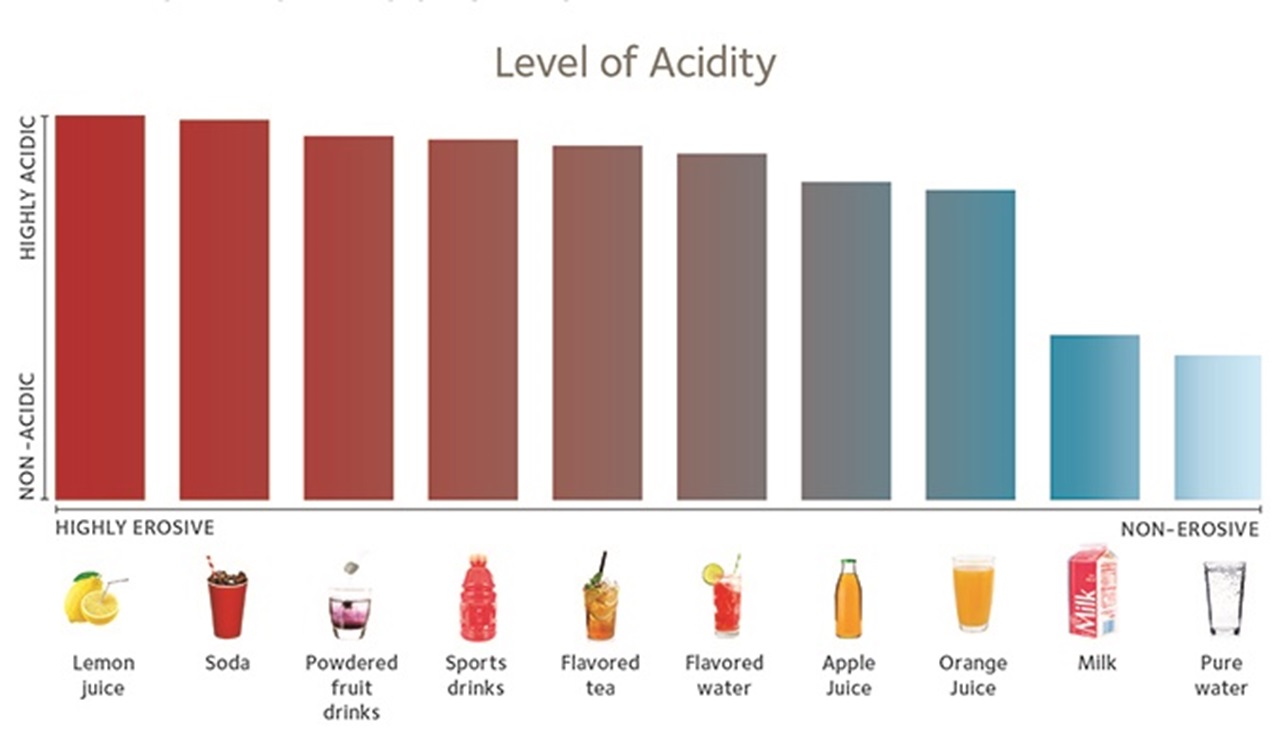Introduction
Acidic foods have become increasingly popular in our modern diets. From citrus fruits to carbonated beverages, these foods and drinks can add a burst of flavor to our meals. However, while they may be tasty, they can also have a negative impact on our dental health. In this blog post, we will explore the effects of acidic foods on your teeth and provide you with important information to help you maintain a healthy smile.
Understanding the Impact of Acidic Foods on Dental Health
Acidic foods can have a significant impact on the health of your teeth. When you consume acidic foods, the acid content can erode the protective enamel layer of your teeth, making them more susceptible to decay and sensitivity.
The Role of Enamel in Dental Health
Enamel is the outermost layer of your teeth and serves as a protective barrier against bacteria and acids. It is the hardest substance in the human body, but it can still be damaged by prolonged exposure to acidic foods.
Acidic Foods and Tooth Erosion
Acidic foods, such as citrus fruits, tomatoes, and carbonated beverages, can contribute to tooth erosion. The acid in these foods softens the enamel, making it more prone to wear and tear. Over time, this can lead to tooth sensitivity, cavities, and even tooth loss.
Common Acidic Foods to Be Aware Of
It’s important to be aware of the acidic foods that can potentially harm your teeth. Here are some common examples:
Citrus Fruits
Oranges, lemons, grapefruits, and other citrus fruits are highly acidic. While they are packed with essential vitamins, consuming them in excess can erode your tooth enamel.
Tomatoes
Tomatoes, especially when consumed in the form of sauces or ketchup, can be highly acidic. They can contribute to enamel erosion and stain your teeth.
Carbonated Beverages
Sodas, energy drinks, and carbonated beverages are not only high in sugar but also highly acidic. Regular consumption can lead to tooth decay and enamel erosion.
Pickles and Pickled Foods
While pickles and pickled foods can be delicious, they are often acidic due to the vinegar used in the pickling process. Consuming them in moderation is key to protecting your dental health.
Summary

Acidic foods can erode the enamel on your teeth, leading to tooth sensitivity, cavities, and other dental problems. The acid in these foods weakens the protective layer of your teeth, making them more susceptible to damage. It is important to be aware of the acidity levels in the foods you consume and take necessary precautions to protect your dental health. By understanding t click here to find out more he impact of acidic foods on your teeth and implementing good oral hygiene practices, you can enjoy a balanced diet while safeguarding your smile.
- Q: What are acidic foods?
- A: Acidic foods are those that have a low pH level, typically below 7. They can include citrus fruits, tomatoes, pickles, vinegar, and carbonated beverages.
- Q: How do acidic foods affect my teeth?
- A: Acidic foods can erode the enamel on your teeth, making them more susceptible to cavities and tooth decay. They can also cause tooth sensitivity and enamel loss.
- Q: How can I protect my teeth from acidic foods?
- A: You can minimize the damage by consuming acidic foods in moderation, rinsing your mouth with water after eating them, and waiting at least 30 minutes before brushing your teeth.
- Q: Are there any oral health benefits to consuming acidic foods?
- A: While acidic foods can be harmful to your teeth, some of them, like citrus fruits, are rich in vitamin C, which is essential for gum health. It’s important to maintain a balanced diet for overall oral health.
- Q: Can brushing my teeth immediately after consuming acidic foods help?
- A: No, brushing your teeth immediately after consuming acidic foods can actually cause more damage. Acidic foods soften the enamel, and brushing right away can lead to enamel erosion. It’s best to wait at least 30 minutes before brushing.

Hello, and welcome to my website! My name is Matthew Simoi, and I am thrilled to share my passion for dental hygiene and oral health with you. As a professional dental hygienist, I have dedicated my career to helping individuals achieve and maintain optimal oral hygiene.

